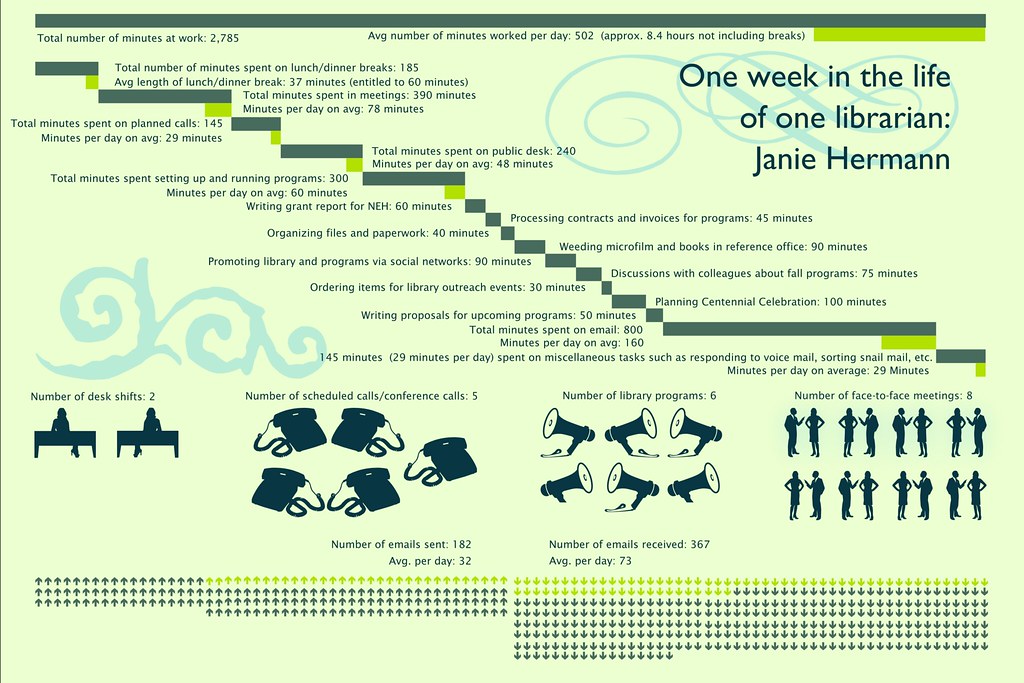
“My Life in the Library – I will continue to fight for libraries”
Von Kathy Dempsey of Medford, New Jersey, USA
Arbeitsstelle und Beruf
Consultant / Inhaberin der Seite Libraries Are Essential
Herausgeberin des Newsletters Marketing Library Services
Herausgeberin des Newsletters derNew Jersey Library Association newsletter
![]()
1. How long are you a member of the library circus? (eg, the first library experience, first job in the library, etc.)?
I have had a long and satisfying library life, even though I do not have a library degree.
I used the library a lot in grade school. While in high school, I joined a club of students who worked in the library, learning and helping the librarian. When I was a college student, again, I got a job working in the university library. When I graduated with my degree in Journalism, I took a paraprofessional job in the library immediately, working there until I found a job in the journalism field.
2. What has driven you, just look for / accept a job in the library area? (your motivation)?
After college, I had jobs in both journalism and other libraries. Then in 1994, a friend told me about a job posting she saw for a publishing company called Learned Information, Inc. Everything it published was for and about libraries. It was an “a-ha!” moment. I had found my dream job, combining my journalism degree and my years of library experience. Now it is 2012 and I work there still (the company is now named Information Today, Inc.: http://www.infotoday.com).
3. What were and are your responsibilities and what has your opinion changed as most clearly?
I spent many years as the editor of Computers in Libraries magazine, and even more years as the editor of the Marketing Library Services newsletter (MLS).
In this job, the more I learned about libraries, the more I realized they needed help with marketing and promotion. Up until the 1990s, libraries were just about the only places that held information. But when the public started getting their own computers and internet access, people began to believe that they could replaces libraries. Not true! As the editor of MLS, which covers libraries around the world, I saw the battles beginning. Local governments thought they could close libraries to save money. Even universities and corporations thought they could reduce or close their libraries. Suddenly, marketing and public relations were essential to keep libraries open. As one of few experts in the field, people began calling on me to speak at conferences and to help them learn how to promote their value. My love and understanding of libraries, going back to childhood, motivated me to help fight for them.
Eventually, I resigned from Computers in Libraries magazine so I could work on library marketing full time. I still edit the MLS newsletter for Information Today, and I formed my own business, called Libraries Are Essential (LAE). I even wrote a book, The Accidental Library Marketer, for people who did not intend to do marketing work but are now trying to learn how. I travel around the US (and to other countries), giving workshops, speaking at conferences, and helping to write marketing plans. I love what I do, and I feel it is very important work, keeping libraries open. All around the world, I read of budgets being cut and of people who think libraries don’t matter in the age of the internet. This is so very wrong. In the information age, people need the expertise and tools of librarians more than ever.
The public simply does not understand that typing a word into Google and getting 1,000 results is not “research” and that the results may not be trustworthy. They don’t like asking for help. They think they can find everything on the internet. The paradox is, as we say in the US, “People don’t know what they don’t know.” They do not realize how much information they are missing.
4. What kind of role does Social Media play in your life? What does it offer for your work?
In my LAE business, I work at home, so social media is vital to me. It lets me reach people through my blog (The M Word: Marketing Libraries at http://themwordblog.blogspot.com/) and my Facebook page (https://www.facebook.com/LibrariesAreEssential). It lets me find stories from around the world, constantly update my knowledge, and work with colleagues overseas. To teach people in places I cannot reach, I can give webinars—speeches online for library groups everywhere. And LinkedIn helps more people to discover me and my services (http://www.linkedin.com/in/kathydempsey), and it helps me connect with people who can write articles about their own marketing projects.
My complete library story is here, on my website:
http://www.librariesareessential.com/kathy-dempsey/about-kathy-dempsey/
There are many other resources there to help you.
![]()

![]()
5. What priorities will emerge for the future development/evolution for your job?
My hope is that my work can help all types of libraries, everywhere, to keep funding, to stay relevant, to stay open. I want everyone to realize that libraries are still essential, today more than ever. I will continue to fight for libraries because I know they help society move forward by storing and sharing the world’s knowledge. What other job could possibly be more important?
Lang leben die Bibliotheken!



